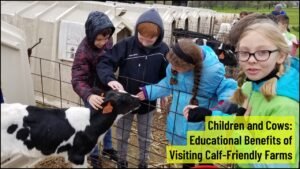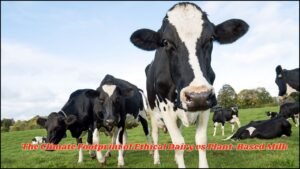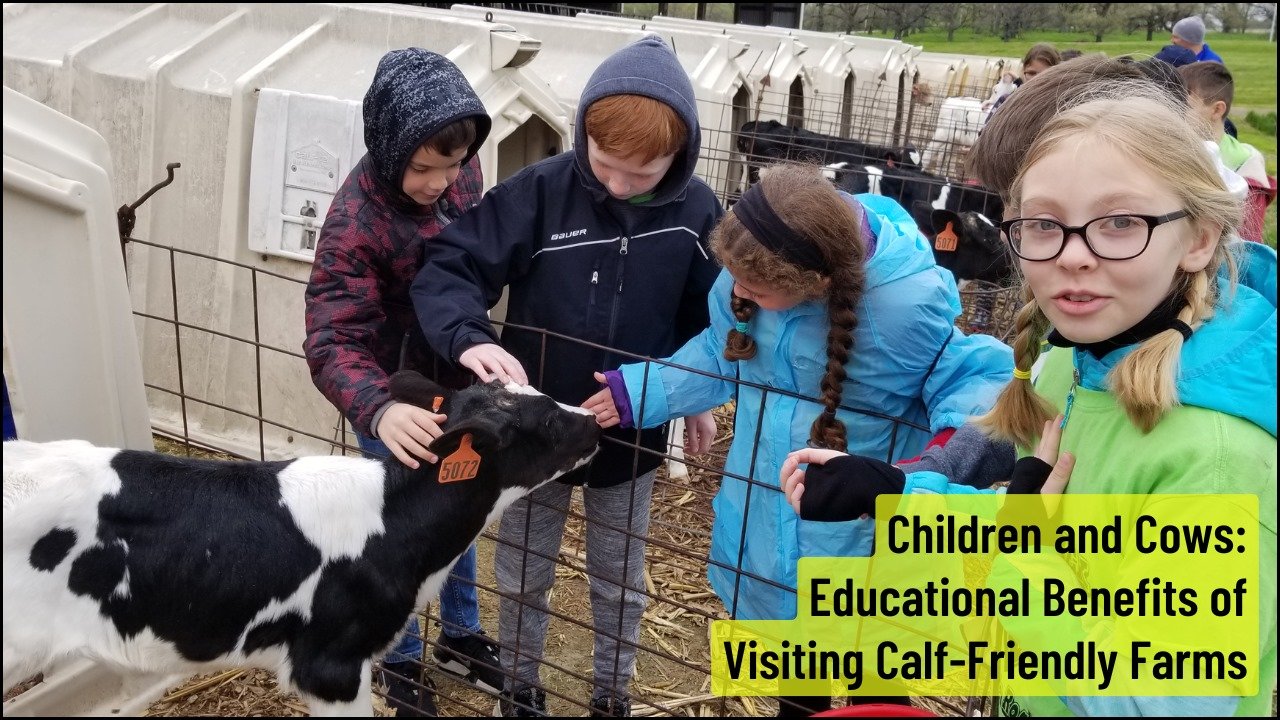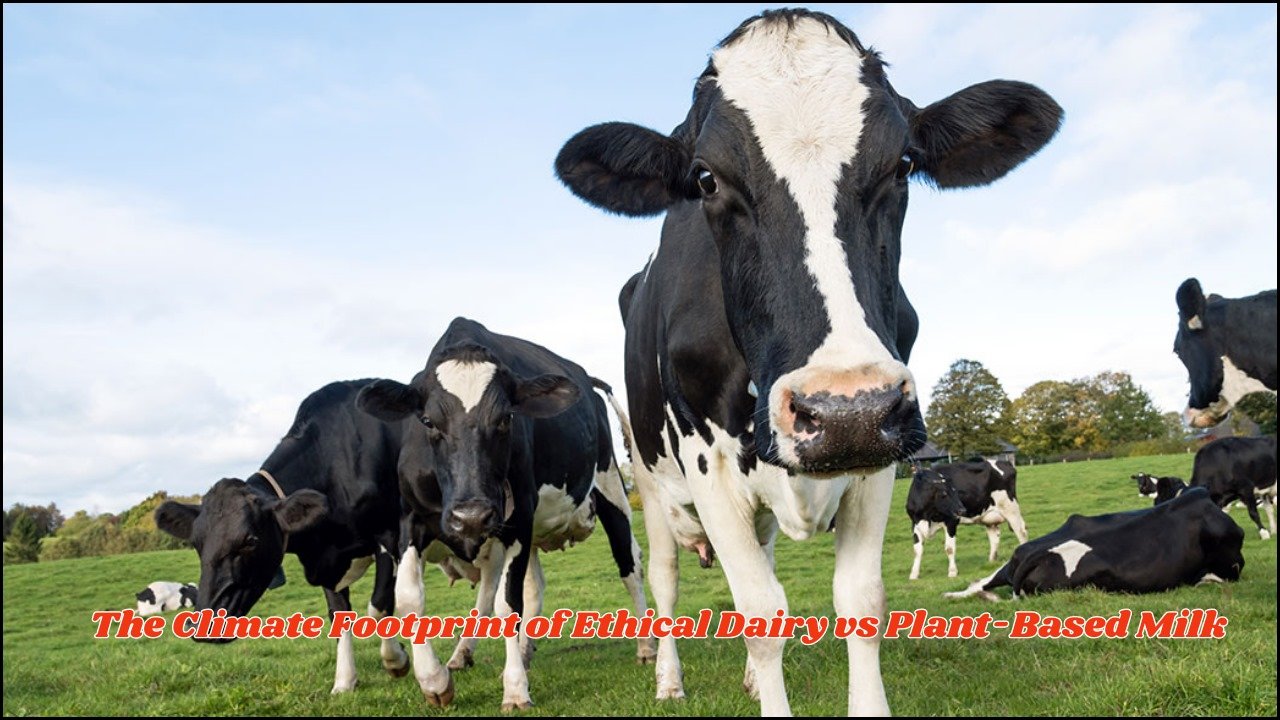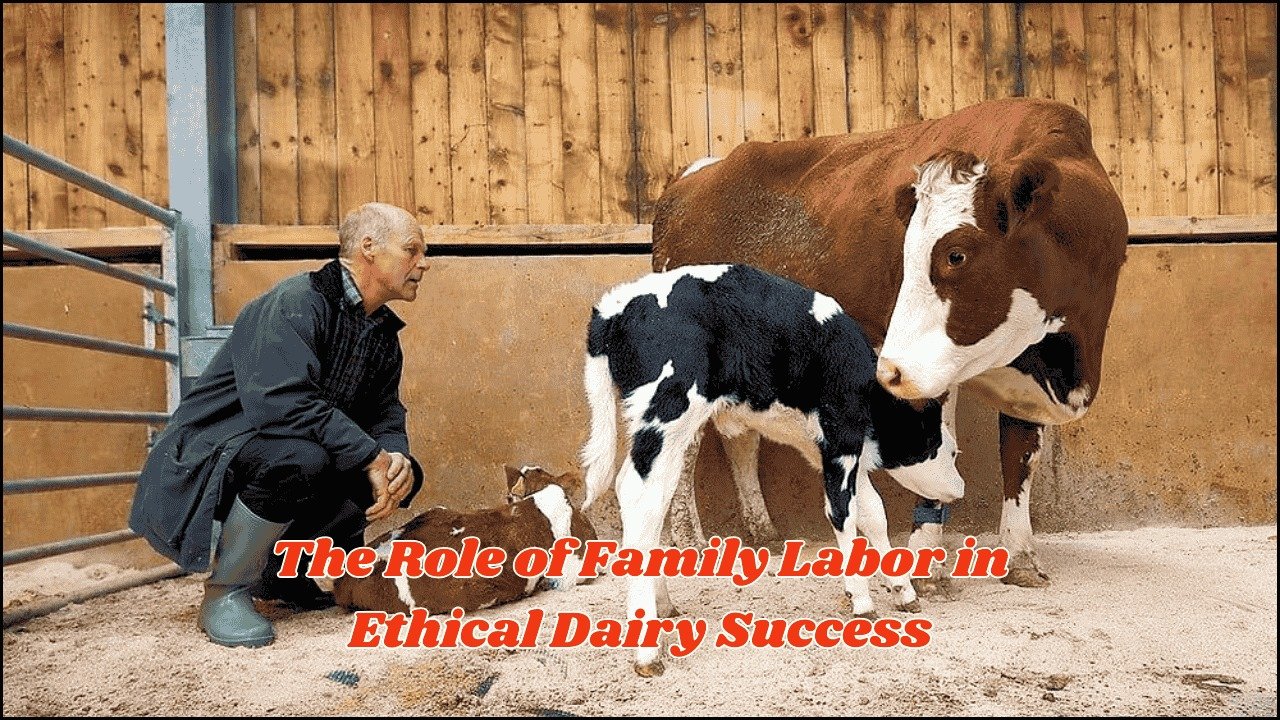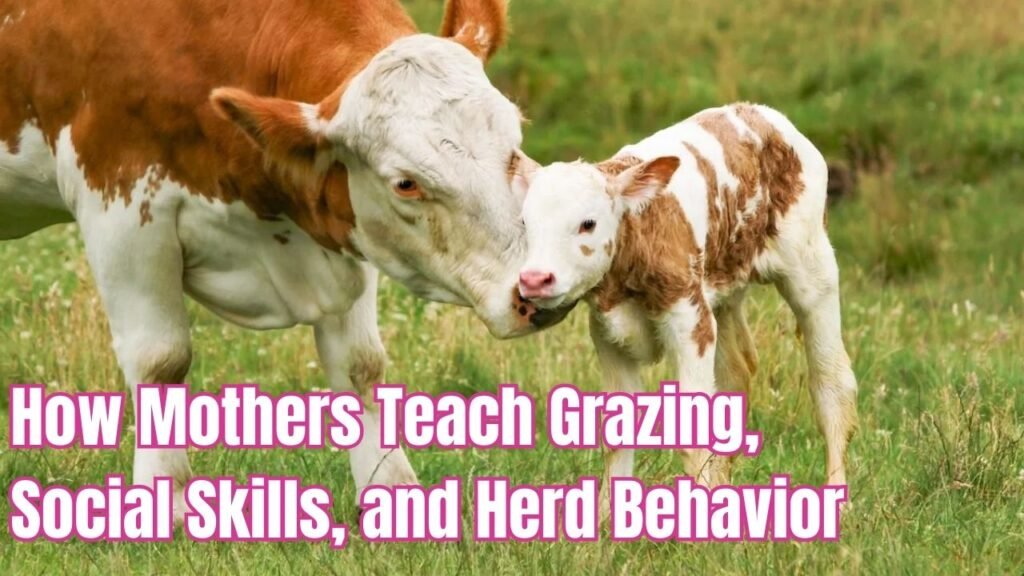
Calves raised alongside their mothers have a distinct advantage over those separated early in life. Beyond the obvious welfare benefits, cow-with-calf rearing provides calves with essential learning opportunities that shape their behavior, health, and productivity. From grazing patterns to social interactions, mother cows serve as living teachers, passing on vital skills that enhance herd harmony and long-term farm efficiency.
Table of Contents
Overview
| Aspect | Mother-Raised Calves Benefit | Farm Impact |
|---|---|---|
| Grazing Skills | Learn faster through imitation | Improved digestion & feed efficiency |
| Social Behavior | Understand herd rules from mothers | Less aggression & smoother integration |
| Stress Management | Security from mother reduces stress | Better immunity & growth |
| Herd Cohesion | Stronger group behavior | Easier management & pasture balance |
| Consumer Appeal | Seen as ethical, welfare-led practice | Higher demand for premium products |
Early Learning Through Observation
Calves are natural imitators. By watching their mothers, they pick up feeding behaviors and learn how to graze efficiently. Research shows that calves introduced to grass with their mothers adapt more quickly than those reared artificially, improving their digestion and growth. This early exposure lays the foundation for lifelong foraging skills, reducing stress during weaning.
Building Social Bonds and Herd Etiquette
Mothers also play a crucial role in teaching calves the unspoken rules of herd life. Through subtle nudges and positioning, they guide calves in understanding dominance, cooperation, and safe spacing. These early lessons help reduce aggression within the herd as calves grow, ensuring smoother integration with other animals.
Stress Reduction
Being raised with their mothers gives calves a sense of security, which reduces stress and supports healthier development. Studies suggest that cow-calf bonding leads to calmer animals with stronger immune systems. This also has economic value for farmers, as lower stress improves both productivity and animal health outcomes.
The Ripple Effect on Herd Behavior
A herd with mother-raised calves tends to be more cohesive. Calves that grow up learning directly from their mothers display improved grazing synchronization and stronger group behavior, making herd management easier. This translates into better pasture use, fewer conflicts, and higher overall efficiency on welfare-led farms.
Science Meets Ethics in Modern Dairying
As consumers increasingly demand transparency and high-welfare practices, dairies that allow maternal rearing are gaining recognition. By aligning science with ethics, these dairies showcase how calf learning directly contributes to both animal welfare and sustainable farming. For farmers, this presents not only a welfare improvement but also a market advantage in premium retail sectors.
FAQs
1. Why is mother-calf rearing important for grazing skills?
A = Calves copy their mothers’ feeding behavior, which helps them adapt to grass diets more quickly and effectively.
2. How does mother-raised rearing affect herd behavior?
A = It improves social learning, reduces aggression, and promotes cohesion, making the herd easier to manage.
3. Do consumers value calf learning in ethical dairying?
A = Yes. Practices that prioritize animal welfare, such as mother-calf rearing, attract consumers seeking transparent and ethical food production.

